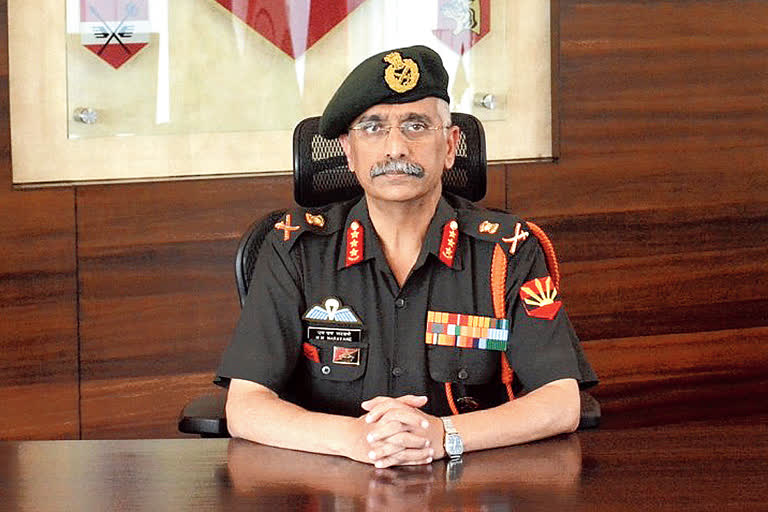New Delhi: In a veiled reference to the border standoff with China, Army Chief Gen MM Naravane on Monday said legacy issues and differences need to be resolved through mutual consent and dialogue, and not by unilateral actions.
In his address at a symposium, Gen MM Naravane, however, noted that there were positive developments with China along the Line of Actual Control (LAC) that led to the disengagement of troops in Pangong lake areas in eastern Ladakh.
The Army Chief also said that the recent comments of Chinese Ambassador Sun Weidong "to avoid relapse and jointly safeguard peace and tranquillity in border areas" augurs well for the future of India-China relations.
Read:| Quad won't be military alliance but there will be military cooperation among members: Naravane
Talking about regional developments, he referred to the renewed commitment by the armies of India and Pakistan to follow the 2003 ceasefire on the Line of Control(LoC), saying it bodes well for the future.
"We have recently entered into a ceasefire understanding with Pakistan Army in February this year, and since then there has been no exchange of fire on an otherwise active LoC. This bodes well for the future," he said.
"With China too, there have been positive developments along the LAC, an area where both countries have differing perceptions on the alignment of the land borders. This has led to the disengagement of troops in eastern Ladakh," he added.
Gen Naravane also mentioned the 11th round of Corps commander-level talks between the armies of India and China and hoped to "settle another border" issues through further negotiations.
The military standoff between India and China that erupted on May 5 last at multiple friction points in eastern Ladakh has significantly strained bilateral ties.
As a result of a series of military and diplomatic talks, India and China completed the withdrawal of troops and weapons from the North and South banks of Pangong lake in February.
Read:| India, Pak agree for strict observance of all LoC agreements
The two sides are now engaged in talks to extend the disengagement process to the remaining friction points.
"Legacy issues and differences need to be resolved through mutual consent and dialogue and not by unilateral actions," he said.
Talking about new challenges being thrown up by the changing character of war, he said "our region" is also witnessing that wars are no longer confined to the customary hardcore kinetics but being increasingly contested in the ambiguous grey zone.
"However, even as we move to a technology-empowered Army, the peculiar unsettled nature of our borders means that the requirement of 'boots on the ground' cannot be simply wished away."
Gen Naravane reiterated that India looked to maintain peace and harmony with all its neighbours and in the region.
"Maintenance of peace and tranquillity requires joint efforts. All nations need to come together to uphold rules-based order, respect international laws and norms and develop mutual respect," he said.
The Army Chief also said that geostrategic spaces are being "constricted" and geostrategic realities are being "altered" without physical battles, noting conflicts are steadily moving to the new domains of space, cyber and informatics.
Read:| Relationship with China would develop as per India's wishes: Army chief
"We are conscious that niche technologies including artificial intelligence, autonomous and unmanned systems, long-range precision technology, internet of things, 5G and quantum computing, to name a few, need to be acquired to remain and capable to face future threats," he said.
About the coronavirus pandemic, he said the Army is devising ways and means to work through the challenging times and get its training schedules back on track.
"The disruptive powers of the pandemic have, however, changed the way we think and act. It has also exposed our vulnerability to global supply chains, forcing us to re-engineer our dependencies and work towards self-reliance," he added.
PTI



